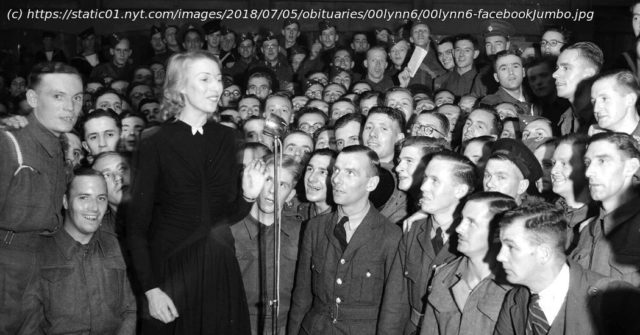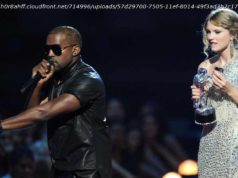Known as the “Forces’ Sweetheart,” Ms. Lynn performed sentimental songs that captured the affection of troops abroad and Britons at home.
Vera Lynn, who sang the songs that touched the hearts and lifted the spirits of Britons from the bomb-blitzed streets of London and Coventry to the sands of North Africa and the jungles of Burma during World War II, died on Thursdayat her home in Sussex, England. She was 103.
Her death was confirmed by her representative, Andrew Gordon.
Long after the war ended, the melodies lingered on: “We’ll Meet Again,” “(There’ll Be Bluebirds Over) The White Cliffs of Dover,” “A Nightingale Sang in Berkeley Square.”
In those wartime years, she became known as the “Forces’ Sweetheart,” and to the end of her life the veterans were her “boys,” still misty-eyed when she sang, “We’ll meet again, don’t know where, don’t know when.”
“Churchill didn’t beat the Nazis,” the English comedian Harry Secombe once said. “Vera sang them to death.”
“People used to say that my singing gave them courage and hope,” Ms. Lynn said. “I think that is a great compliment.”
In an era when American fighting men plastered their barracks with pinups of Betty Grable, Lana Turner and Rita Hayworth, it was Ms. Lynn and her simple, sentimental ballads that captured the affections of British troops.
“I always believed what I was singing,” Ms. Lynn once said. “My songs reminded the boys what they were really fighting for — precious personal things rather than ideologies.”
Without losing the common touch, she came a long way from East Ham, the London neighborhood where she was born Vera Welch on March 20,1917. Her father, Bertram, was a plumber. Her mother, Annie, fostered her daughter’s performing career. Young Vera led a local dance troupe and was allowed to sing at the end-of-term school show because her mother made the costumes.
At 7, Vera was singing in workingmen’s clubs in East Ham; at 11, she left school to join a traveling variety troupe. At 18, having adopted her grandmother’s maiden name as her surname, Vera Lynn was singing with popular big bands, and at 20 she became the resident singer with the bandleader Bert Ambrose.






